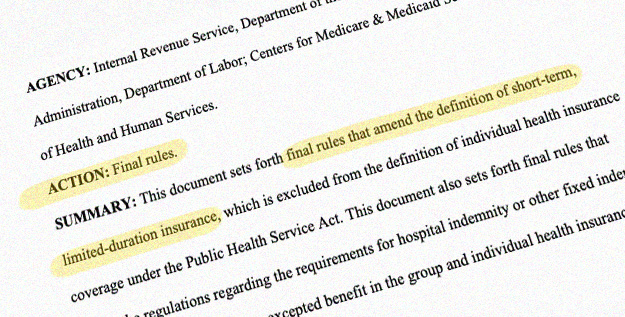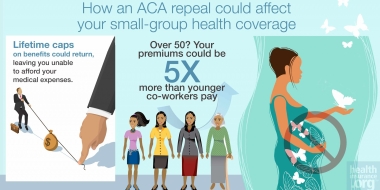Q. My health insurance options from my employer are on an exchange. Is this part of Obamacare?
A. It could be, or it could be a private exchange. The state health insurance exchanges were developed as part of the Affordable Care Act – or Obamacare – and began operating in 2014. (Massachusetts and Utah have exchanges that pre-date the ACA.)
If your employer has purchased coverage through the SHOP exchange in your state, it’s an exchange established under Obamacare. There’s just one exchange in each state, although some are run by the state while others are run by the federal government at Healthcare.gov. The federal government stopped supporting the small business enrollment platform in 2018, but there are still several state-run exchanges that have robust SHOP platforms for small businesses. In most cases, employers with up to 50 employees are eligible to use the SHOP exchange, but in California, Colorado, New York, and Vermont, employers with up to 100 employees can use the SHOP exchange.
There are also private exchanges available for employers to use, although ACA tax credits for small businesses are not available through private exchanges. Most private exchanges are operated by benefits consulting firms, health insurance brokerages, insurance companies, or health plans. Your employer can contract with one of these organizations, which provides access to an exchange website, customer support, and other administrative support. The private exchange may offer health insurance options from one or several insurance companies.
In employer health insurance exchanges, you may also be hearing about a shift from “defined benefit” to “defined contribution.” Under a defined benefit scenario, an employer offers one or two options to all employees and generally pays the bulk of the associated costs (pre-ACA, this was generally the norm). Under a defined contribution scenario, the employer contributes a set amount of money for each employee, and offers a wider range of health insurance options.
Under a defined contribution “employee choice” model, the employee picks any available plan and uses the employer contribution to fund it. The amount that the employer contributes is pre-determined, but the employee can pay a higher premium to get a more robust plan, or can save even more money by selecting a lower-cost plan. The employees have a wide range of choices, while the employer had a predictable premium contribution from one month to the next.
This concept has been enhanced by the introduction of individual coverage health reimbursement arrangements (ICHRAs) and qualified small employer health reimbursement arrangements (QSEHRAs), both of which allow employers to reimburse employees a set amount each month to help cover the cost of self-purchased health insurance (as opposed to offering group health insurance coverage). These are fairly new products, but they are gaining traction among employers. So it’s possible that you might find that your employer directs you to the ACA-created exchange in your state to purchase individual/family coverage (rather than enrolling you in group coverage), and then reimburses you for some of the premium costs.
Louise Norris is an individual health insurance broker who has been writing about health insurance and health reform since 2006. She has written dozens of opinions and educational pieces about the Affordable Care Act for healthinsurance.org.













